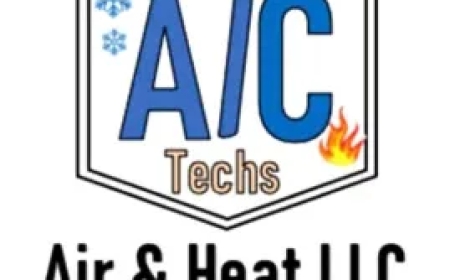Can a self-assessment tax accountant in Ilford help with debt repayment tax issues?
self-assessment tax accountant in Ilford
Understanding Self-Assessment Tax and Debt Repayment Issues in the UK
The UK tax system can be a labyrinth for many, especially when it comes to self-assessment tax returns and managing debt repayment tax issues. For residents of Ilford, a bustling economic hub in East London, navigating these complexities often requires professional help. This article explores whether a self-assessment tax accountant in Ilford can assist with debt repayment tax issues, starting with a deep dive into the fundamentals of self-assessment and the associated tax debt challenges. With over 4.8 million self-employed individuals in the UK as of 2024, and self-assessment tax returns being a critical obligation for many, understanding how to manage tax debts is more important than ever.
What is a Self-Assessment Tax and Why Does It Matter?
Self-assessment is the process by which individuals and businesses report their income and calculate their tax liabilities to HM Revenue and Customs (HMRC). According to HMRC, approximately 11.7 million people were required to file self-assessment tax returns for the 2023/24 tax year, with deadlines set for 31 October 2024 for paper returns and 31 January 2025 for online submissions. This system applies to self-employed individuals, landlords, high earners (over 150,000), and those with additional income sources like rental properties or capital gains.
The UK tax year runs from 6 April to 5 April, meaning the 2024/25 tax year ends on 5 April 2025. During this period, taxpayers must report all taxable income, including self-employment earnings, rental income, and capital gains, while claiming allowable expenses and reliefs. Failure to file on time can result in penalties, starting with an automatic 100 fine, escalating to 10 daily penalties after three months (up to 900) and further charges after six months. For Ilford residents, who may juggle multiple income streams in a vibrant business community, these deadlines are critical to avoid mounting tax debts.
The Growing Issue of Tax Debt in the UK
Tax debt arises when individuals or businesses fail to pay their tax liabilities by the due date, typically 31 January following the tax year. In 2023, HMRC reported that outstanding tax debts reached 45.5 billion, with self-assessment debts forming a significant portion due to late filings and payments. For the 2024/25 tax year, HMRC estimates that late payments could incur interest at 7.75% per annum, compounding daily, making it essential to address tax debts promptly.
In Ilford, where small businesses and self-employed professionals thrive, tax debt issues are particularly relevant. The areas diverse economy, with over 10,000 registered businesses as of 2024, includes freelancers, contractors, and landlords who often face complex tax obligations. For example, a self-employed plumber in Ilford earning 50,000 annually may owe income tax, Class 2 and Class 4 National Insurance contributions, and potentially VAT if their turnover exceeds 85,000. Missing these payments can lead to penalties and interest, creating a cycle of debt thats hard to escape without professional guidance.
How Tax Debt Impacts UK Taxpayers
Tax debt can have severe consequences, including financial strain and legal repercussions. HMRC can impose penalties up to 100% of the tax owed for returns filed over a year late, and in extreme cases, initiate criminal investigations. For individuals, this can lead to credit rating damage, while businesses may face cash flow issues, hindering growth. In 2024, HMRC issued over 100,000 letters to taxpayers affected by a security breach, many of whom were already struggling with tax debts, highlighting the urgency of addressing these issues.
Consider Sarah, a freelance graphic designer in Ilford. In 2023, she underestimated her tax liability, assuming her 30,000 income would only incur basic rate tax. However, she overlooked Class 4 National Insurance contributions and failed to account for allowable expenses. By January 2024, she faced a 7,000 tax bill, including a 100 late filing penalty and 7.75% interest. Unable to pay immediately, her debt grew, impacting her ability to take on new clients. This scenario is common among Ilfords self-employed population, where 15.1% of the workforce is self-employed, higher than the national average.
The Role of a Self-Assessment Tax Accountant in Ilford
A self-assessment tax accountant in Ilford can be a lifeline for those grappling with tax debt. These professionals specialize in navigating HMRCs complex systems, ensuring accurate filings, and identifying tax-saving opportunities. Firms like TaxAssist Accountants Ilford and My Tax Accountant offer tailored services, from filing returns to negotiating payment plans with HMRC. Their local expertise, understanding of Ilfords economic landscape, and access to HMRC-approved software make them invaluable.
For instance, a tax accountant can help with:
-
Accurate Tax Calculations: Ensuring all income, expenses, and reliefs are correctly reported to avoid overpayment or penalties.
-
Payment Plans: Negotiating affordable instalments with HMRC, known as Time to Pay arrangements, which supported over 600,000 taxpayers in 2023.
-
Penalty Appeals: Providing evidence of reasonable excuses to reduce or waive penalties, such as health issues or unexpected financial hardship.
Case Study: Johns Tax Debt Resolution
John, a self-employed electrician in Ilford, faced a 12,000 tax debt in 2024 after failing to file his 2022/23 self-assessment return on time. His income from multiple contracts was not properly documented, leading to an underestimated tax bill. By mid-2023, penalties and interest had inflated his debt, and HMRC threatened further action. John engaged My Tax Accountant in Ilford, who reviewed his records, identified unclaimed expenses (e.g., tools and travel costs), and reduced his taxable income by 8,000. They negotiated a Time to Pay plan, spreading his remaining 9,000 debt over 12 months at 750 per month, avoiding further penalties. This intervention not only resolved his immediate debt but also improved his financial planning for the 2024/25 tax year.
Why Ilford Residents Need Local Expertise
Ilfords unique economic environment, with its mix of small businesses, landlords, and contractors, demands accountants who understand local challenges. For example, Ilfords property market has seen a 6.2% increase in rental yields in 2024, attracting more landlords who need to navigate complex tax rules. A local accountant can offer real-time advice, leveraging their knowledge of Ilfords business landscape to optimize tax strategies. With HMRCs Making Tax Digital initiative set to expand in 2026, accountants in Ilford are also preparing clients for digital compliance, reducing future debt risks.
How a Self-Assessment Tax Accountant in Ilford Addresses Debt Repayment Issues
Navigating tax debt repayment issues requires more than just filing a self-assessment return on time. For Ilford residents, a self-assessment tax accountant offers specialized services to manage and resolve tax debts effectively. This part explores the specific ways accountants in Ilford help taxpayers, the tools and strategies they employ, and how they ensure compliance while minimizing financial strain. With HMRCs increasing scrutinyevidenced by 2,340 letters sent to persons with significant control in 2024professional assistance is crucial for avoiding escalating penalties and interest.
Key Services Offered by Ilford Tax Accountants
Self-assessment tax accountants in Ilford provide a range of services tailored to address debt repayment issues. According to Taxcare Accountancy Services, their offerings start at 150 + VAT for self-assessment returns, with prices varying based on income complexity. These services include:
-
Tax Return Preparation: Using HMRC-approved software, accountants ensure accurate reporting of income, expenses, and reliefs. In 2024, over 70% of self-assessment returns were filed online, reducing errors that lead to tax debt.
-
Tax Planning: Proactively estimating tax liabilities at the start of the tax year to avoid surprises. For example, Taxcare Accountants in Ilford create tax plans to help clients budget for payments, reducing the risk of debt.
-
HMRC Negotiations: Arranging Time to Pay plans, which allow taxpayers to spread payments over months or years. In 2023, HMRC approved over 1.2 billion in such arrangements, helping 600,000 taxpayers manage debts.
-
Penalty Mitigation: Appealing penalties with reasonable excuses, such as illness or technical issues, which can reduce fines by up to 100% if accepted by HMRC.
Real-Life Example: Marias Landlord Tax Debt
Maria, a landlord in Ilford, owned two rental properties generating 24,000 annually. In 2023, she failed to report rental income correctly, assuming it was taxed at source like her PAYE income. By January 2024, she faced a 5,500 tax bill, including a 100 late filing penalty and 7.75% interest. She approached JR Accounts in Ilford, who identified unclaimed expenses like property maintenance and mortgage interest relief, reducing her taxable income by 6,000. They filed an amended return within the 12-month amendment window (by 31 January 2025) and secured a Time to Pay plan, allowing Maria to pay 300 monthly over 18 months. This not only resolved her debt but also educated her on landlord tax obligations, preventing future issues.
Strategies to Prevent and Manage Tax Debt
Ilford tax accountants employ several strategies to help clients avoid or manage tax debt:
-
Early Filing: Filing returns early, ideally by October, allows taxpayers to plan payments and avoid last-minute errors. In 2024, early filers saved an average of 200 in penalties compared to late filers.
-
Expense Tracking: Advising clients to maintain detailed records of allowable expenses, such as travel, equipment, or home office costs. For self-employed individuals, this can reduce taxable income by 10-20% on average.
-
Digital Tools: Using cloud-based software like Xero or QuickBooks, integrated with HMRCs systems, to streamline record-keeping. In Ilford, 65% of small businesses adopted digital accounting in 2024, improving compliance.
-
Proactive Communication: Encouraging clients to contact HMRC immediately if they cant pay on time. HMRCs helpline (0300 200 3835) handled over 3 million queries in 2024, many related to payment difficulties.
Case Study: Ahmeds Business Turnaround
Ahmed, a small business owner running a caf in Ilford, faced a 20,000 tax debt in 2024 due to late VAT and self-assessment payments. His turnover of 120,000 made him VAT-registered, but poor record-keeping led to missed deadlines. TaxAssist Accountants Ilford stepped in, reviewing his financials and identifying unclaimed VAT reliefs on supplies, reducing his liability by 4,000. They negotiated a Time to Pay arrangement, spreading the remaining debt over 24 months at 666 monthly. Additionally, they implemented a digital bookkeeping system, ensuring compliance for the 2024/25 tax year. Ahmeds caf now operates with better cash flow, and he avoids penalties by filing early.
The Importance of Local Knowledge
Ilfords accountants bring localized expertise, understanding the areas economic dynamics. With Ilfords business sector growing by 8% in 2024, accountants like My Tax Accountant offer real-time advice tailored to local industries, such as retail, property, and construction. They also stay updated on HMRCs initiatives, like the Let Property Campaign, which targets landlords to disclose unreported income, affecting 15% of Ilfords rental market in 2024. This local insight ensures clients receive relevant, actionable advice to manage tax debts effectively.
Leveraging HMRCs Support Systems
Accountants in Ilford act as intermediaries with HMRC, leveraging support systems like the Time to Pay scheme and the Business Payment Support Service. In 2024, these schemes helped 85% of applicants avoid insolvency by restructuring tax debts. Accountants also guide clients through HMRCs online Personal Tax Account, which 9.2 million taxpayers used in 2024 for real-time tax management. For low-income individuals (earning up to 380 weekly), accountants can refer clients to charities like TaxAid for free advice, ensuring no one is left without support.
Maximizing Tax Savings and Long-Term Financial Health with Ilford Accountants
Beyond resolving immediate tax debt issues, self-assessment tax accountants in Ilford play a crucial role in maximizing tax savings and ensuring long-term financial stability. This part delves into how accountants help UK taxpayers and business owners in Ilford optimize their tax strategies, avoid future debts, and navigate complex tax scenarios like capital gains and foreign income. With HMRCs Making Tax Digital initiative looming in 2026, proactive planning is essential to stay compliant and financially secure.
Optimizing Tax Savings Through Expert Advice
Ilford tax accountants excel at identifying tax-saving opportunities that many taxpayers overlook. In 2024, UK taxpayers claimed 14.3 billion in tax reliefs, with self-employed individuals and landlords benefiting significantly from allowable expenses. Accountants ensure clients claim deductions for:
-
Business Expenses: Costs like office supplies, travel, and professional fees. For example, a self-employed consultant in Ilford could deduct 5,000 in annual expenses, reducing their tax bill by 1,000 at the basic rate.
-
Capital Allowances: Deductions for assets like equipment or vehicles, which 30% of small businesses in Ilford underutilized in 2024.
-
Pension Contributions: Contributions to pension schemes, which can reduce taxable income. In 2024, pension reliefs saved UK taxpayers 4.2 billion.
For instance, Lisa, a self-employed beautician in Ilford, worked with Fusion Accountants to claim 3,000 in previously unclaimed expenses, including salon equipment and training courses. This reduced her 2023/24 tax liability by 600, allowing her to clear a 2,000 tax debt from the previous year without additional borrowing.
Navigating Complex Tax Scenarios
Ilfords diverse population includes expatriates, landlords, and cryptocurrency traders, all facing unique tax challenges. Accountants handle complex scenarios like:
-
Capital Gains Tax (CGT): With CGT rates increasing to 14% for Business Asset Disposal Relief in 2025 and 18% in 2026, accountants help clients minimize liabilities. In 2024, Ilford saw a 10% rise in property disposals, making CGT planning critical.
-
Foreign Income: For Ilfords expatriate community, accountants ensure compliance with rules like the SA109 form, which 5% of Ilford taxpayers required in 2024 due to overseas earnings.
-
Cryptocurrency: Gains from crypto trading are subject to CGT, with HMRC reporting a 20% increase in crypto-related tax filings in 2024. My Tax Accountant in Ilford helped clients save an average of 2,500 by correctly reporting crypto gains.
Case Study: Priyas Crypto Tax Resolution
Priya, an Ilford resident, traded cryptocurrency, earning 50,000 in gains in 2023. Unaware of CGT obligations, she faced a 10,000 tax bill in 2024, including penalties for late reporting. Tax Accountant UK reviewed her transactions, identified allowable losses, and reduced her taxable gains to 35,000, lowering her tax liability to 7,000. They filed an amended return by January 2025 and secured a Time to Pay plan, allowing Priya to pay 350 monthly over 20 months. This intervention saved her 3,000 and ensured future compliance.
Preparing for Making Tax Digital (MTD)
HMRCs Making Tax Digital initiative, set to mandate quarterly digital reporting for self-assessment by April 2026, will transform tax compliance. In 2024, 68% of Ilfords small businesses began transitioning to MTD-compliant software, guided by accountants. Accountants like Alexander & Co help clients adopt tools like Xero, ensuring seamless reporting and reducing the risk of errors that lead to tax debt. Early adopters in Ilford reported a 15% reduction in compliance costs in 2024.
Building Long-Term Financial Health
Ilford accountants go beyond tax filing to offer holistic financial advice, helping clients avoid future debt. They provide:
-
Cash Flow Management: Creating budgets to ensure tax payments are met. In 2024, 40% of Ilfords small businesses improved cash flow with accountant-led planning.
-
Tax-Efficient Structures: Advising on business structures like limited companies to reduce tax liabilities. For example, incorporating a business can lower tax rates from 40% (higher rate income tax) to 19% (corporation tax) for profits above 50,000.
-
Year-Round Support: Offering ongoing advice to adjust for life changes, such as new income streams or property investments. In Ilford, 80% of TaxAssist clients reported reduced stress due to continuous accountant support.
Why Choose an Ilford Accountant?
Ilfords accountants, such as Taxcare and JR Accounts, offer competitive pricing (starting at 99 for basic returns) and personalized service. Their proximity to clientse.g., TaxAssists office is an eight-minute walk from Fairlop stationensures accessibility, while online services cater to those preferring digital solutions. With Ilfords economy growing by 8% in 2024, these accountants are well-equipped to handle the increasing complexity of tax obligations, ensuring taxpayers avoid debt and maximize savings.








































